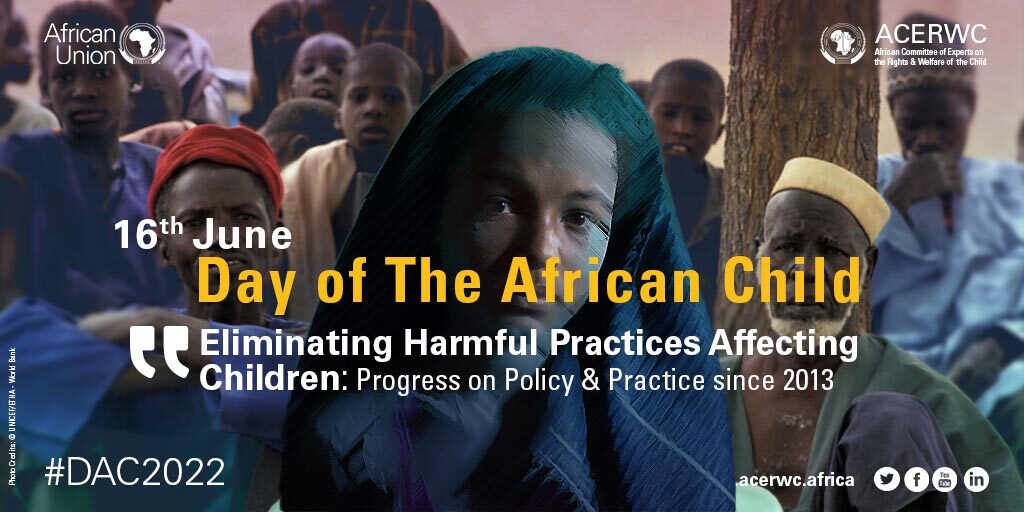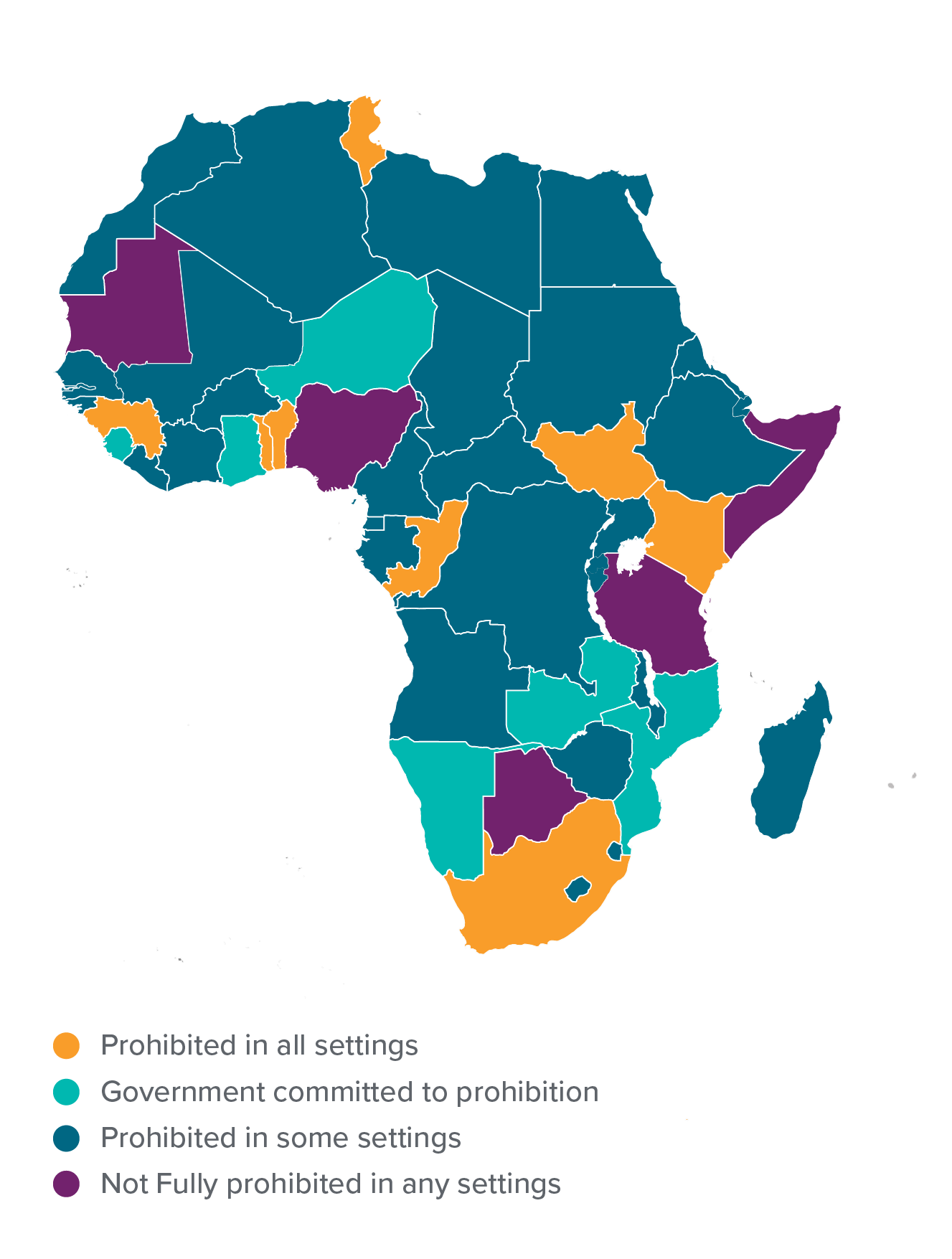Day of the African Child (DAC) 2022: ‘Eliminating Harmful Practices Affecting Children: Progress on Policy and Practice since 2013’.
Corporal punishment of children – a harmful practice
Corporal punishment– the most common form of violence against children – is a harmful practice which seriously breaches children’s rights to physical integrity and respect for their human dignity. Corporal punishment has long been traditionally accepted in childrearing and education across the world, including in Africa. It violates not just children’s right to freedom from all violence, but also their rights to health, development and education, and has damaging effects on society as well as individuals.

A 2014 UNICEF survey in sub-Saharan Africa revealed that 82 per cent of children aged between one and 14 years of age have reported experiencing violent discipline in the month preceding the survey. There has been accelerating progress towards law reform in Africa, with ten African states prohibiting corporal punishment of children in all settings, including in the home. However, the pace of reform is still slow. Too many governments on the one hand claim to support ending all forms of violence against children, while on the other they fail to prohibit violence inflicted in the name of “discipline”. Prohibiting corporal punishment of children is central in addressing violence against children in Africa. Once prohibition is in place, it is also essential to ensure effective implementation of the laws.
Corporal punishment carries multiple risks of harm and has no benefits. The evidence that corporal punishment is harmful to children, adults and societies is overwhelming. Research on the impact of and associations with corporal punishment and other cruel or degrading punishment show links between corporal punishment and a wide range of negative outcomes, including direct physical harm, negative impacts on mental and physical health, increased violent and criminal behaviour in adults, damaged education as well as damaged family relationships.
In adopting the 2030 Agenda, African states have committed to work to “End abuse, exploitation, trafficking and all forms of violence against and torture of children” (target 16.2). Ending harmful practices can also be achieved through target 5.2 which aims to eliminate all forms of violence against all women and girls in the public and private spheres. Under its Aspiration 7, Africa’s Agenda for Children 2040 also requires that by 2040, no child should be subjected to corporal punishment.
In the context of the Day of the African Child 2022, African Governments are reminded that prohibiting and eliminating all corporal punishment is essential in combating harmful practices affecting children in Africa.
Please check our research summary on the harmful effects of corporal punishment available here
The World Health Organisation Factsheet on Corporal Punishment is available here

